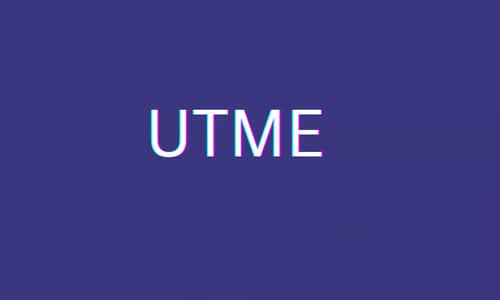Unified Tertiary Matriculation Examination (UTME) is an entrance exam organized by the Joint Admissions and Matriculation Board (JAMB) in Nigeria. It is a requirement for students who want to gain admission into universities, polytechnics, colleges of education, and other tertiary institutions. The exam helps to evaluate students’ academic knowledge and readiness for higher education.
UTME
UTME is a nationwide exam conducted every year for students who have completed their secondary education. The test is mandatory for anyone who wants to get admitted into the university.
UTME Exam
UTME is a computer-based test (CBT) of four subjects, with English Language as compulsory for all candidates. The other three subjects depend on the candidate’s chosen course. Each candidate must complete the test within the allocated time, usually two hours.
Is JAMB different from UTME?
The Joint Admissions and Matriculation Board (JAMB) manages and supervises the UTME process. JAMB ensures fairness, organizes registration, sets the syllabus, and provides candidates with the necessary materials like the UTME brochure and reading texts.
Eligibility Criteria to Sit for UTME
To qualify for the UTME, candidates must meet the following criteria:
1. Get at least five O-Level credits, including English and Mathematics, in WAEC, NECO, or equivalent exams.
2. Have a valid National Identification Number (NIN).
3. Complete the UTME registration process within the specified period.
4. Be sixteen (16+)
5. Must be willing to go to university because UTME expires every year.
How Much to Register for UTME
The UTME registration fee is ₦5,700, which includes the cost of an e-pin, an official reading text, and access to the JAMB syllabus. Any additional fees come from your cyber cafés or centers.
Importance of UTME
The UTME plays a major role in the Nigerian educational system for the following reasons:
1. Merit-Based Admission: Only those who passed the exam are given admission, which means It ensures a fair and standardized process for selecting candidates for tertiary institutions.
2. Evaluation of Knowledge: The exam helps assess candidates’ academic abilities and readiness for higher education.
3. Unified Access: It provides a single platform for admission into various types of tertiary institutions, including universities, polytechnics, and colleges of education.
4. Transparency in Admission: By centralizing the process, it reduces bias and makes admission criteria uniform.
UTME Grading System
UTME is graded out of a total of 400 marks. Each subject contributes 100 marks, and the candidate’s final score is calculated as the sum of the marks across all four subjects. Institutions use these two methods to give admission ( Post UTME or screening) to give students admission.
How to Pass the UTME Exam
To pass UTME, you must prepare and strategy yourself for success:
1. Study the JAMB syllabus thoroughly for all your selected subjects.
2. Practice using past questions to familiarize yourself with the exam format and timing.
3. Create a consistent study plan and adhere to it.
4. Consider joining preparatory classes or tutorials for additional support.
5. While in the examination hall, stay calm and manage your time effectively during the exam.
Pitfalls to Avoid While Sitting for the UTME Exam
1. Arriving Late: Ensure you get to the exam center on time to avoid being disqualified.
2. Prohibited Items: Do not bring items like mobile phones, calculators, or any device not allowed by JAMB.
3. Exam Malpractice: Avoid cheating or using any unauthorized materials, as this can lead to disqualification and a ban from future exams.
4. Neglecting Instructions: Carefully read and follow all instructions provided during the exam.
Bottom Line
UTME is the exam you need to get admission into any Nigerian university; spend time going through its syllabus, past questions, and do’s and don’ts of the exam, and your chances of passing are not far-fetched.
